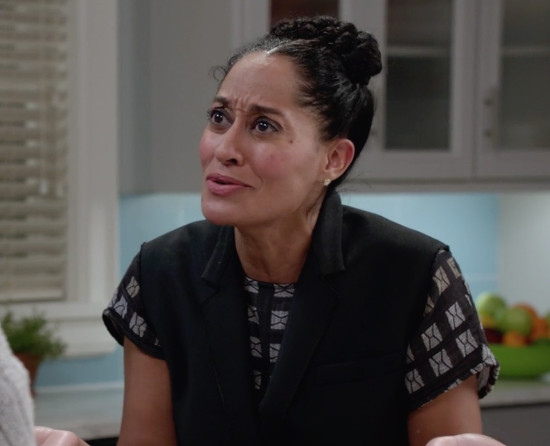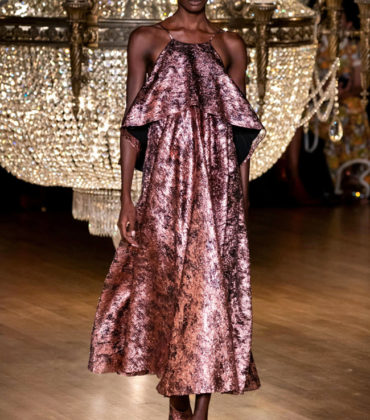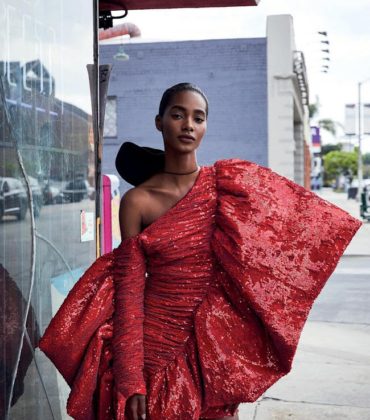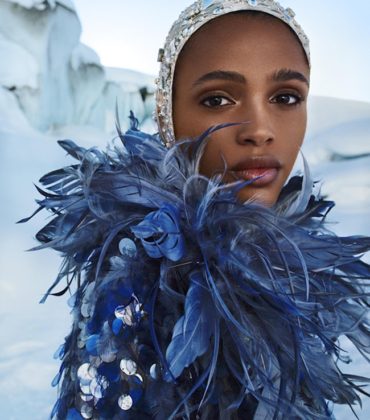
The latest episode of Black-ish, titled “Johnson & Johnson,” tackles feminism, in the context of marriage — specifically whether or not a wife should take her husband’s name.
The discussion is spurred by Dre’s (Anthony Anderson) sister Rhonda’s (Raven-Symoné) impending wedding to her longtime girlfriend Sharon (Elle Young). When Dre and Rainbow get into a discussion over who will take whose name in a lesbian wedding, Rainbow drops the bomb that she actually never took Dre’s name. The revelation is played for laughs since the couple actually had the same last name before getting married.
Feminism #blackishhttps://t.co/iBTEbVYKw5
— black-ish (@black_ishABC) April 14, 2016
At this point, Ruby chimes in, and Rainbow invokes feminism as the reason for her choice. What follows is a discussion that tries to pin down the specific struggles faced by black feminists, but really misses the mark.
Ruby: Oh, so, I see. You done turned into one of these hairy-legged man-haters.
Rhonda: Mom, for the last time, lesbians don’t hate men or love tuna.
Ruby: No, baby, I’m talking about feminists now.
Rhonda: Oh, well, they really do hate men. I don’t know how they feel about tuna.
Bow: Feminists do not hate men. We actually love tuna. We simply believe that women and men are equal. And I will fight up against any custom or tradition that reinforces that we’re not. Women like Alice Paul, Betty Friedan, Gloria Steinem, these are the women that paved the way for me to be the doctor that I am today. I say that a lot don’t I?
Dre: Yes, you do.
Bow: Okay. The point is everyone should be a feminist.
Ruby: Rainbow, ain’t nobody got time for that! I couldn’t’ afford to burn my bra. I only had the one!
Rhonda: What I think Mama’s trying to say is that Black feminists and White feminists had a little bit of a different path. It wasn’t as simple for Black feminists because they had to choose between civil rights and feminism.
Ruby: And I chose civil rights! Yeah. I didn’t march or anything. But ain’t nobody got time for that either — except privileged White girls.
Rhonda: It wasn’t just White girls, Ma. And even if it had been, we need to thank them for getting that ball rolling down the field.
While Ruby’s perception of feminism is locked in a specific time period, so is Rainbow’s. Despite trying to be progressive, Rainbow fell victim to the very same limited viewpoint as her mother-in-law, by completely glossing over the contributions of black feminists. She mentions Gloria Steinem but forgets about Dorothy Pitman Hughes. The discussion also completely ignores the fact that feminists, black and white alike, had been making major strides well before any of the women she namechecked were even born. Rebecca Lee Crumpler, the first African-American woman to receive a Doctor of Medicine degree, graduated in 1864.
Then there’s the idea that feminism was “put on hold” for black women in lieu of the Civil Rights Movement. Women like Rosa Parks were involved in many facets of the fight for equality. Parks openly identified as a radical black feminist and was often troubled by certain portrayals of her life and work.
When Zoey (Yara Shahidi) also brings her viewpoints to the conversation, which are actually much needed, she also exemplifies how complicated conversations about feminism can be. Overall, despite offering varied perspectives about feminism, Black-ish still misses an opportunity to acknowledge the women who are often left out of the conversation.




